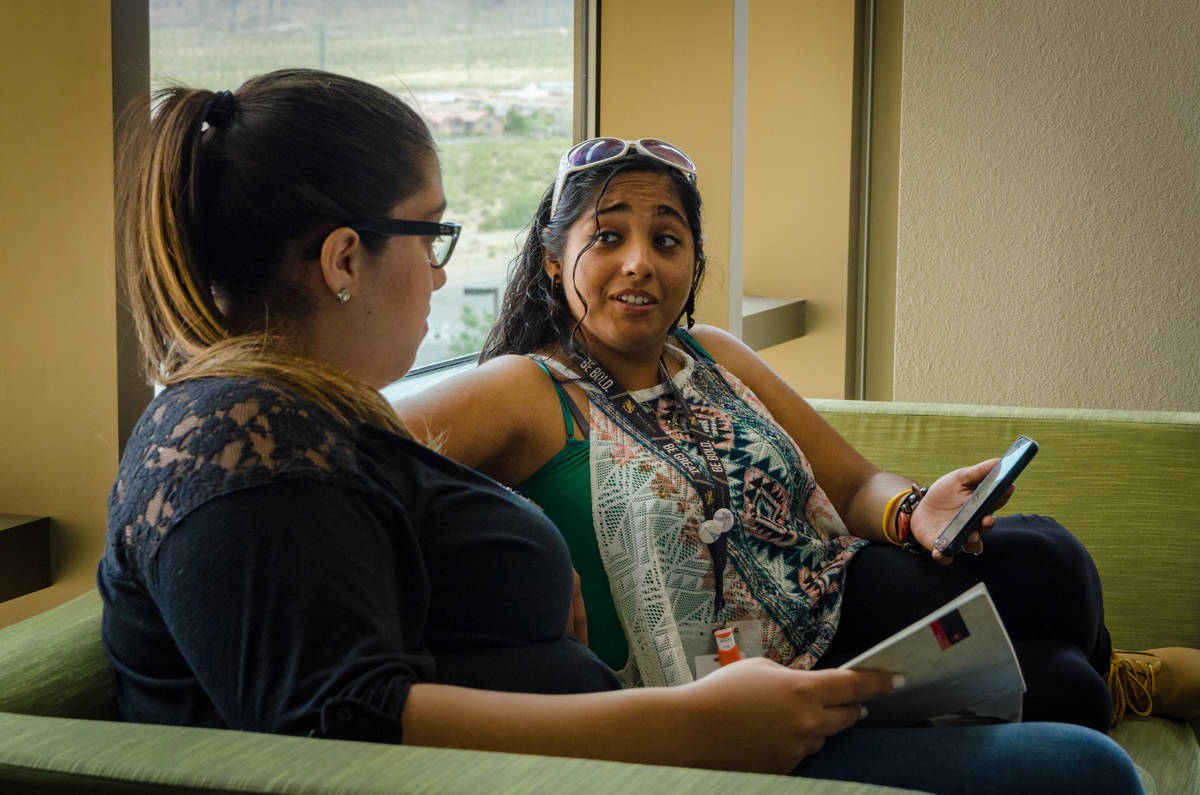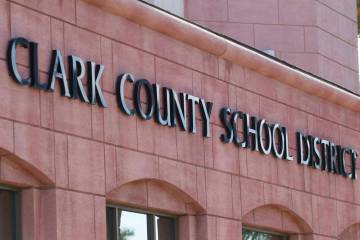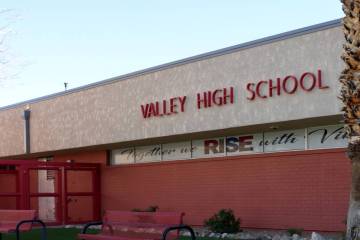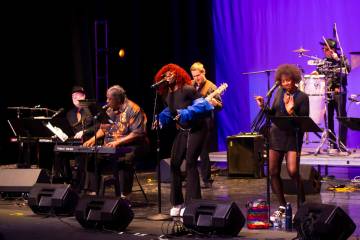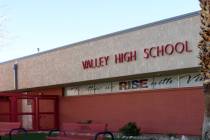Las Vegas colleges tap donor funds to help students amid pandemic
Alejandra Carrillo-Marroquin wasn’t sure how she’d pay for spring semester tuition at Nevada State College.
But the 35-year-old part-time psychology student found help in the form of an approximately $2,000 emergency relief grant from the college.
“It definitely was a blessing because I wasn’t sure how I was going to continue on this semester,” she said.
Many Las Vegas-area colleges and universities, including Nevada State, have student emergency relief funds that use funds from private donors to help students facing unforeseen financial hardships. Students don’t have to repay the money.
The funds existed before the COVID-19 pandemic, but local colleges are seeing a greater demand for the aid. And they’re helping students in other ways, too, such as through on-campus food pantries and clothing closets.
Schools also have used federal coronavirus relief money to provide grants to eligible students and for other needs, such as the laptop computers that the College of Southern Nevada gave to first-time, full-time students to borrow or keep if they graduate from the college with a degree within two years.
Nevada State College in Henderson also has awarded more than $40,000 in emergency relief grants to 166 students during the pandemic. The college has raised more than $100,000, some of which has come from employees who are opting to make monthly contributions through a paycheck deduction.
The need for assistance ramped up “once we went into a quarantine state,” said Laura Hinojosa, case manager at the college. Since then, the number of requests has been “pretty steady,” she added.
During the pandemic, there are cases where a student’s primary provider has lost income and now a student worker wage is what’s left to support a family, she said.
The college is continuing to accept applications from its students who have financial needs such as help with paying rent and other bills, buying food and hygiene items, paying for college tuition and supplies, and paying medical bills.
“A lot of it has come down to our basic needs as humans,” Hinojosa said, which are essential to meet in order for students to be successful.
Students fill out an online application, but it’s extremely rare for a request to be denied, Hinojosa said. “We want to make our application process as inclusive as possible with minimal barriers.”
Carrillo-Marroquin has received two grants from Nevada State College’s emergency fund — one for $300 prior to the pandemic and one for about $2,000 this winter. She said that as an immigrant and Latina, “School is vitally important for me.”
She started at the college in 2016 and hopes to graduate in spring 2022 with a bachelor’s degree in psychology, and minors in deaf studies and communication. She’s also a student worker at the college for 19 hours a week.
She came to Las Vegas because she wanted to get to know her father and go to school. But her father, who was her only family member in town, died two years ago of cancer.
“It’s been a struggle since then,” she said, but noted she’s thankful for the support she found at Nevada State College. “Every step of the way, I felt the love that comes at NSC.”
At UNLV, more than $300,000 in emergency funds has been raised from nearly 1,000 donors to “support students facing unexpected hardships during the pandemic,” university spokesman Tony Allen said in an email. He didn’t have information about how many students have received assistance.
“We know that the past year has been incredibly difficult for so many, including our students, who have persevered through unprecedented circumstances to continue their studies at UNLV,” he said.
The College of Southern Nevada, a community college with three Las Vegas Valley campuses, provided emergency funding to 1,160 students in 2020, with a total of $270,896 allocated.
“As we move forward with the student emergency fund, we’re actually trying to reach more students,” said Sonya Pearson, vice president and provost for the college’s Charleston campus.
The college has three emergency fund programs: a general student emergency fund, a one-time donation for utility assistance and a fund specifically for students in science, technology, engineering or math programs.
Students can apply for up to $500. Many of the requests are for assistance with paying utility bills or to pay past-due bills related to housing or transportation, Pearson said.
She said requests typically aren’t specific to paying college tuition, and the college tries to help students find other resources — such as federal financial aid — to help in that area.
Demand has grown, Pearson said, “obviously in response to COVID-19, but also in terms of the increasing needs of our students.”
Contact Julie Wootton-Greener at jgreener@reviewjournal.com or 702-387-2921. Follow @julieswootton on Twitter.



